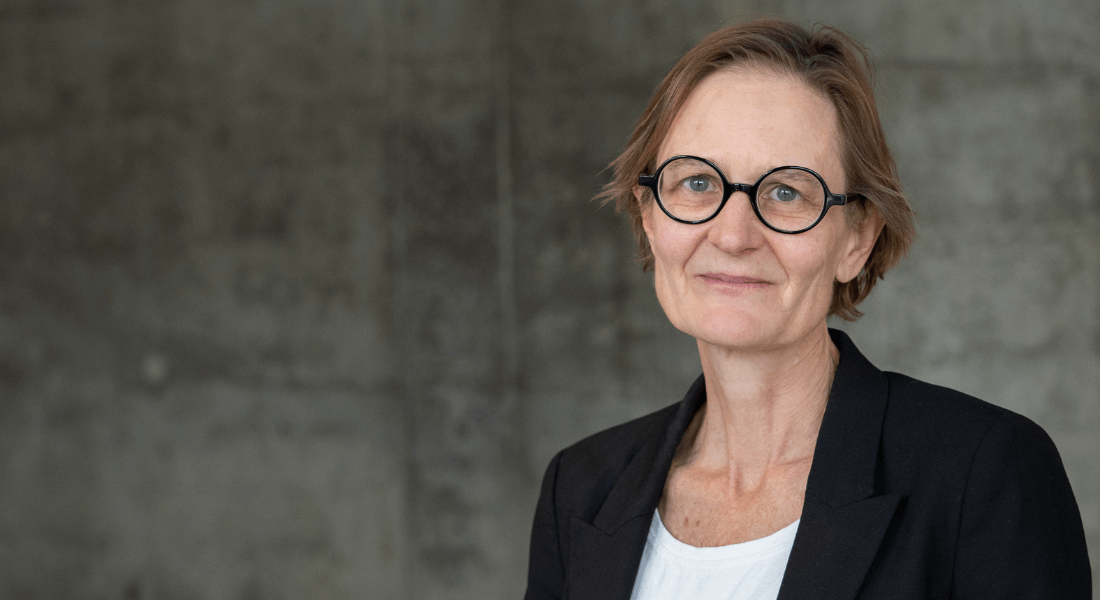“It may be a common notion that researchers are a bit dusty, but that is not the case”
“There are many inspiring people doing research, and if you have the slightest bit of curiosity, you should try it.” These encouraging words were spoken by Mette Rosenkilde, who was recently awarded with the European Research Council's Advanced Grant of DKK 18 million for innovative research over the next five years.

Mette Rosenkilde, who is a professor at the Department of Biomedical Sciences at the University of Copenhagen, has received the European Research Council's Advanced Grant for, research into the so-called G protein-coupled receptors, some of the body's most important proteins which control multiple processes in the healthy and the sick body. Hopefully, the research may one day lead to treatments in areas that are difficult to treat today.
We spoke to Mette Rosenkilde about her research and sources of inspiration. And then she reveals her best piece of advice when it comes to research.
What is your research about, and why is it important?
“I am primarily researching how to use G protein-coupled receptors and other membrane proteins in the body to develop medications targeted at these, and that is also what we are going to do with this grant. We will investigate some receptors within areas which we are not particularly good at treating right now. In previous research, we have come particularly far with two or three receptors that have been important for the development of medications used for metabolic diseases, such as obesity or diabetes, and medications used for viral infections. It is the receptors that dictate our work, so we are very open as to where we would like to end up from a purely therapeutical point of view. By studying the receptors, we will find out whether they might be targets for new medications.”
When did you find out that you wanted to be a researcher?
“I made that decision shortly after I started working as a student researcher with Professor Thue Schwartz who also researches in G protein-coupled receptors. This was during the bachelor degree programme so it was actually quite early that my appetite was whetted. Before then, I had not considered whether I should be a researcher or a doctor, I just thought it was interesting to study medicine. So maybe it was easier for me to choose the research path, because I did not have any definite preconception about my career before I started my studies.”
I have always been very inspired by the people around me and those I have done research with.
Who has been the biggest inspiration in your career?
“All the people around me who have been just as interested in research as I have. I became one of just a handful of permanently employed women among the scientific staff at my department, when I was first hired as an assistant professor at the Faculty of Health and Medical Sciences, so there were not many other women to look up to. But I have always been very inspired by the people around me and those I have done research with.”
What has presented the greatest challenge in your career?
“It can sometimes be a challenge for me to find a balance between work and leisure. I see research as a hobby, and something fun, and therefore, I do not distinguish that much between leisure time, hobbies and work.”
What are you most proud of in your career?
“I am proud every time we finish a piece of work, when we publish a scientific article, when a student graduates, or when we receive a grant like this. Although I generally find it difficult to use the word ‘proud’, there are always some little things that I am proud of. And then I feel happy when I have given a lecture in which the students show genuine interest. They are just as important as the research, and teaching is something I appreciate more and more.”
What is your most important advice to those who want to become researchers?
“It is difficult to give one specific piece of advice, and I do not like giving advice. But when I teach, I always tell my students that if research sounds exciting to them, then they should go for it. They may be getting a little tired of hearing me say that. There may be a common notion that researchers are a bit dusty, but that is not the case. So, if you are curious, you should definitely permit yourself to try it and throw yourself into it wholeheartedly.”
Contact:
Professor Mette Rosenkilde
rosenkilde@sund.ku.dk
